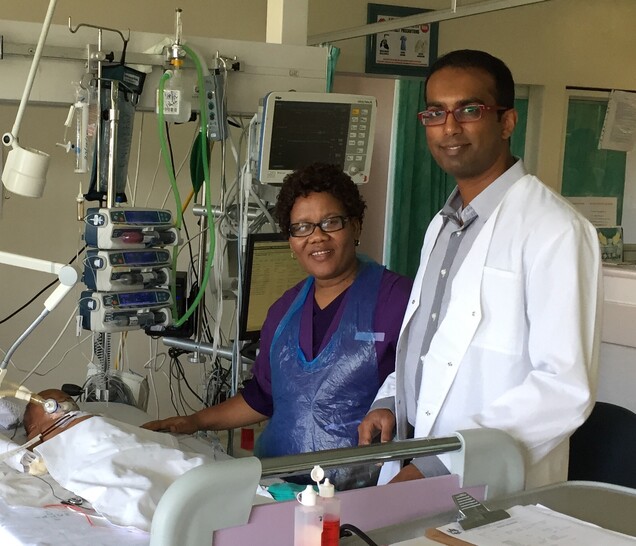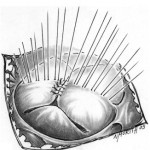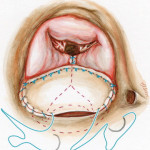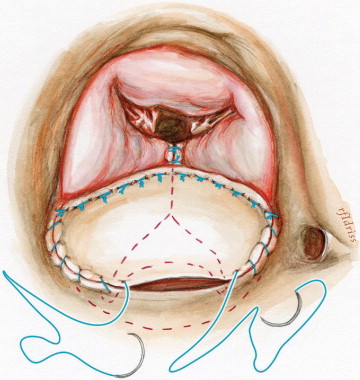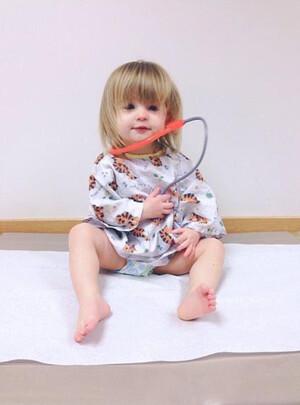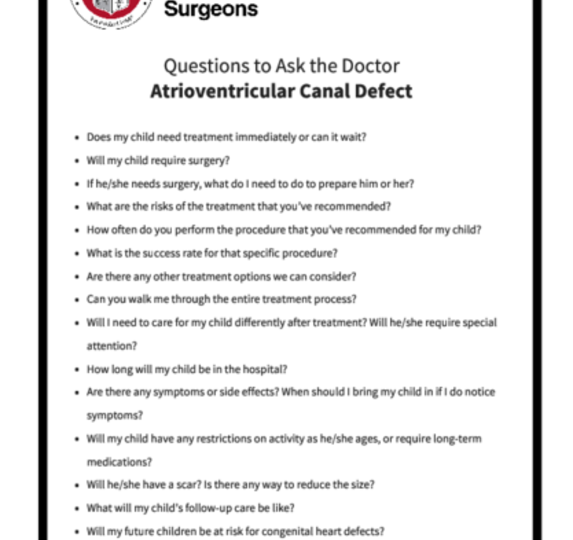Atrioventricular Canal Defect
An atrioventricular (AV) canal defect is a problem in the connection between the heart’s upper chambers (atria) and the lower chambers (ventricles) that results in extra blood being circulated to the lungs.
This defect consists of a hole in the center of the heart between the upper and lower chambers, as well as problems with the heart valves.
AV canal defects, also known as atrioventricular septal defects or endocardial cushion defects, account for about 5% of all congenital heart disease and are most common in infants with Down syndrome (15%–20% of all newborns with Down syndrome have atrioventricular canal defects).
A complete AV canal defect can sometimes be diagnosed on a fetal ultrasound or echocardiogram before your baby is born.
If your child’s AV canal defect has been repaired successfully with surgery, he or she can expect to lead a normal, healthy life, often with no activity restrictions.

